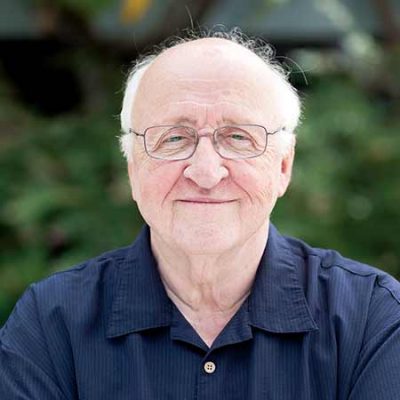Lucy was well known on the skid row in Sioux City, Iowa. I never heard anyone refer to her by her family name. It was always just “Lucy.” And she was not only well known on the streets — she was feared. Lucy had a sharp tongue, and what she said with that tongue was obviously the expression of a sharp mind not completely dulled by years of addiction and — so the rumors went — illegal activities. She was a member of the Winnebago tribe whose reservation was in Nebraska, about twenty miles west of Sioux City, but she had lived on skid row for many years. My impression was that she was in her seventies.
I got to know Lucy at the Sioux City Gospel Mission during my undergraduate days in northwest Iowa. The Christian junior college that I attended there sponsored “Gospel teams,” and I was the leader of one of them. We would provide musical numbers and talks about spiritual matters at church services and youth groups. One evening a month we would also conduct the nightly service at the Gospel Mission, and on those occasions I would deliver an evangelistic sermon. Lucy was a faithful presence at those services. The Mission staff told me that they could not remember a time when Lucy did not attend regularly.
In spite of Lucy’s addictions, I do not remember her being anything but well-behaved in the evening services. On one occasion, though, she did speak up during a service. I was preaching, and at one point a man in the audience stood up to challenge what I was saying. He quoted Mary Baker Eddy, and was persistent in attempting to engage me in a theological argument. Suddenly, Lucy turned to him and said in a stern voice: “Shut the hell up and let him preach!” He responded to her in a pleading voice: ”But I don’t agree with him.” Her retort was memorable to me, even if it wasn’t exactly a word of personal encouragement: “I don’t agree with him either! That’s why I sleep while he preaches!”
A month or so after that intervention, as I was walking along a street in the skid row area, I came upon a small group of people surrounding two individuals who were obviously in a very heated dispute. One of them was Lucy, who was flinging a string of profanities at her opponent.
I decided to intervene. I walked up to Lucy and started to speak to her, but she began addressing me with the same kind of profanities. When she paused, I said to her, calmly: “Lucy, do you think the Lord likes to hear you using that kind of language?” Lucy’s eyesight was failing, so as she looked directly into my face, it took her a few seconds to focus.
“Oh, Lord!” she cried out. “ It’s the preacher! Oh, Lord!” At that point she turned her face up heavenward and lifted her arms, and her tone took on an almost prayerful quality: “And then came the dawn! And then came the dawn!” Then she began to sob, and she walked away quietly.
I have never forgotten what I saw on Lucy’s face when she looked upward with her arms raised. It has come to define for me what people mean when they say that they saw “the light of glory” on someone’s countenance. In that moment, as the tears were welling in her eyes, I saw the reflection of what I believe to be a heavenly light.
Soon after that encounter I went home to New Jersey for the summer, and then I finished my studies elsewhere. I never saw Lucy again. But I nurture the conviction that when she turned her feeble eyes heavenward that day, the Lord looked down on her with a loving smile. And I think he smiles on me when in my heart I think of her now as “Saint Lucy.”



